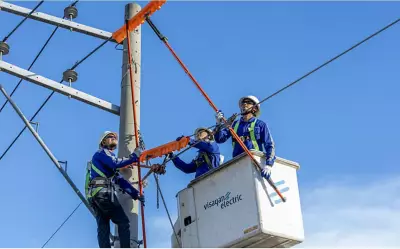
In a landmark decision that could reshape the Philippines' booming gig economy, a Cebu court has delivered a stunning blow to the current freelance model, ordering companies to recognize delivery riders as regular employees rather than independent contractors.
Court Orders Full Employee Benefits for Gig Workers
The Regional Trial Court Branch 18 in Cebu City has ruled that food delivery platforms must provide their riders with the complete package of employee benefits, including:
- Social Security System (SSS) coverage
- PhilHealth benefits
- Pag-IBIG Fund membership
- 13th-month pay
- Service incentive leave
- Other mandatory benefits under Philippine labor law
- Food delivery services operating nationwide
- Transportation network companies
- Other platform-based service providers
- Thousands of Filipino gig workers
- Greater job security
- Access to social protection programs
- Better compensation packages
- Legal recognition of their employment status
The Case That Started It All
The ruling stems from a complaint filed by delivery riders against their company, challenging the prevailing practice of treating gig workers as independent contractors without job security or benefits. The court found that despite the flexible nature of their work, these riders functioned as regular employees under the company's direction and control.
"The nature of their work, though seemingly flexible, bears the characteristics of an employer-employee relationship," the court stated in its decision, emphasizing that the company exercised sufficient control over the riders' performance and work standards.
Implications for the Gig Economy
This ruling sends shockwaves through the rapidly expanding gig economy in the Philippines, potentially affecting:
Industry experts predict this decision could lead to significant operational changes for companies relying on freelance workers, potentially increasing labor costs while providing better protection for workers.
What This Means for Filipino Gig Workers
For the thousands of delivery riders and gig workers across the country, this ruling represents a potential turning point in their fight for better working conditions. The decision could pave the way for:
The court's decision emphasizes that "the fundamental labor rights of workers should not be compromised by emerging business models" in the digital age.
Industry Response and Next Steps
While the ruling currently applies to the specific case in Cebu, legal experts suggest it could set a precedent for similar cases nationwide. Companies in the gig economy are expected to closely monitor developments and potentially adjust their business models to comply with evolving labor standards.
As the gig economy continues to grow in the Philippines, this landmark decision marks a significant step toward redefining worker rights in the digital era, balancing innovation with fundamental labor protections.





